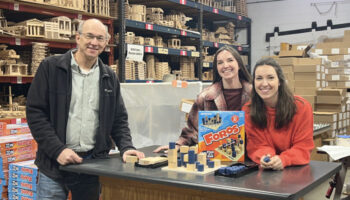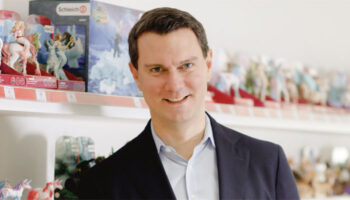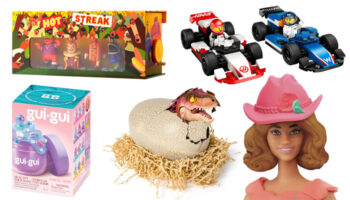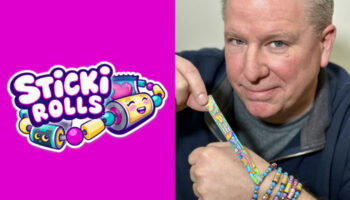Edurino’s Franziska Meyer and Irene Klemm talk education, innovation and play
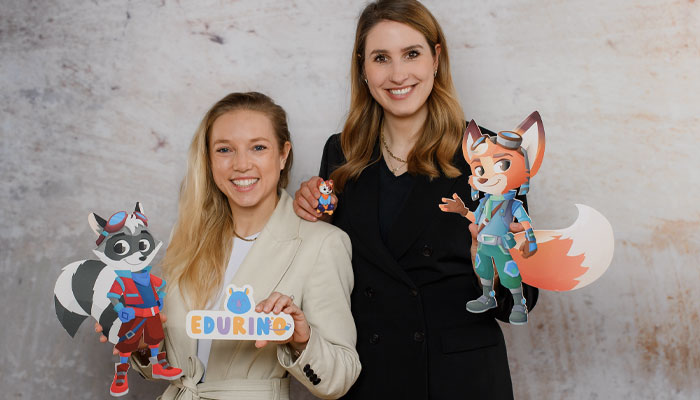
Irene, Franziska, it’s great to catch up. Where did the idea for Edurino spark from?
Irene Klemm, Co-Founder, Edurino: Franziska and I started Edurino almost four years ago. The world of tomorrow presents very new challenges for our children and technology is developing faster and faster… AI and ChatGPT are just the tip of the iceberg; there is so much happening beneath that.
And most of us grew up without any digital education. We started our journey in the midst of the Covid lockdown and realised how substantial the gap is between kids being so natural with digital devices and parents having an insecurity as to how to support their children in an increasingly digital and fast-changing world. So we know it’s becoming more important to teach 21st century skills – or ‘future skills’ – to children at an early age, and that’s what Edurino is here to help with.
Great. And for anyone new to the product, how would you describe it?
IK: Edurino is a combination of a digital learning app, real figurines and our ergonomic stylus. Kids place these figures on the app once it’s opened on a smartphone or tablet to unlock different learning worlds. Each figurine opens a different world with games around literacy, numeracy, coding, creativity… And parents have full control over both the screen time and the learning progress.

Can you talk us through the experience a child might have with an Edurino kit?
Franziska Meyer, Co-Founder, Edurino: It’s like a digital pre-school book with a gamified component. And the most important part for us is to produce ‘real’ games, right? This is key. We want to create amazing games for children, where they don’t realise they’re learning something.
The children have the figurine and that unlocks a world and a story. They’re on a mission with the character and by learning skills, they can be successful in that mission. What’s also crucial is that everything is based on intrinsic motivations… They actually want to help the character solve the mission.
The other thing that’s special is that children are either right, or not yet right. That’s powerful for kids because in school you’re often taught that you’re wrong and that feels negative. Edurino is always a positive experience for the kids.
You mentioned creating games where children almost don’t realise they’re learning. How do you get that balance right between educational and fun?
FM: We have a gaming team in-house, and while we do have educators in-house too, most people in the company come from gaming. That’s really important. The teachers that we have in-house look after the curriculum, and then our game designers and artists take that into our games. It has to be fun first and foremost and we test our games in partner kindergartens to ensure they pass that test.

I imagine game designers and teachers have quite different approaches. How do you bring those groups together in a productive way?
FM: It’s a really collaborative approach and we make sure that both sides know each other’s worlds. And both game designers and teachers test our games. We’re also not just working with in-house teachers. We also collaborate with external teachers and universities to test our games and give us useful feedback to ensure the desired learning progress is happening in-game.
The toy figures look great. Can you tell us a little about your approach to character design?
FM: We wanted to create our own IP, with a world of characters that kids could relate to. We also wanted each character to stand for a wider topic, like Mika, our fox that covers literacy. His stories involve rhyming games and kids really connect him to that topic.
We also wanted to ensure that the characters’ translation from 2D to 3D was as good as it could be, so we worked with best-in-class partners on the hand-painted figurines. The toys are full of character and kids play with them away from the digital game too.
IK: It also helps parents talk to their children about the experience. They can say things like: “Hey, what did you learn with Mika?” It strengthens the learning process. And from the start of the company, we’ve always had both components. It’s one experience; you can’t really divide the parts, so it was vital. In fact, the whole company has been built around the one shared experience across offline and online.

I’d imagine educational systems differ country to country. Have you had to adapt the games to suit different territories?
IK: We see education as a global topic. There’s a big difference between the skills you learn in the classroom – phonics, literacy, numeracy – and core competencies that, in the near future, all children will need. Things like critical thinking, problem-solving, coding, social emotional skills, creativity… These are unified across the globe. That said, we are working with experts to localise content where needed as well and check that learning goals fit the different curriculums, because there are some differences. In addition, we test with partner kindergartens in the different countries to develop the games and include the preferences of our different target audiences across the markets.
Great. Do you also have to keep on top of advances in tech to ensure the games feel as current as they can?
IK: Definitely. We always have an eye on those things and we want to incorporate new innovations into our games. At the same time, we’re always asking ‘What is our role here from an educational perspective?’ We have to tackle it from both sides.
Before we wrap up, you’ve spoken of establishing Edurino as a brand in its own right. Could you ever seen yourselves teaming up with an IP – like a Sesame Street, for example – to launch licensed kits with established characters?
IK: Right now, we are focused on creating our own IP that stands for educational values. Of course, we’ll always ask the question as to whether certain collaborations would make sense down the road… But it will always come down to it being a positive thing for our users and that the educational element is strengthened by a collaboration.

Makes total sense. Now, looking ahead, what does the future have in store for Edurino?
IK: We want to expand our UK presence to more nurseries, primary schools and retailers. The second thing is to provide parents with more useful educational information about their child. If you think about the school system, when class sizes are as big as they are, it’s often impossible to get specific information about your child and how you can support them further. We want to do more in that area to become a key digital companion for parents too. And the third thing is to grow with the kids. We want our games to accompany kids even further in their education journey.
Exciting times. I have one last question: What helps you have ideas?
FM: Two things help me. One is to have exchanges with our customers and users – both the kids and the parents. Watching kids use our products inspires me. They have a completely unique perspective on the world – and it’s a legitimate one. The other one is speaking to peers, both within our team and those doing other innovative things. Those conversations inspire me.
IK: I agree with Franziska’s points, and I also get inspired by playing with amazing products – both kid products and those targeted at adults. It also helps me to spend time outside and let the thoughts come. If you’re always in the mode to execute, it’s sometimes hard to ideate.
Guys, this has been great. Congratulations on everything you’ve done so far with Edurino. Let’s check back in again soon.
–
To stay in the loop with the latest news, interviews and features from the world of toy and game design, sign up to our weekly newsletter here






